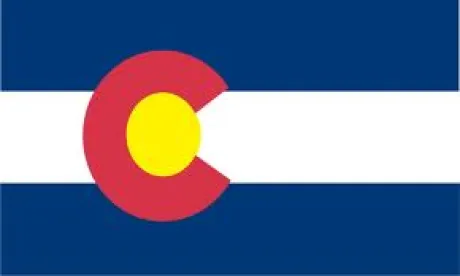Colorado Gov. Jared Polis called a special legislative session to assist small businesses and individuals impacted by the Coronavirus Disease 2019 (COVID-19) pandemic. Colorado legislators met Nov. 30-Dec. 2, 2020, and passed 10 bills aimed at a number of relief efforts in a variety of areas including education-related internet access, child care, food pantry assistance, tax relief, and assistance to small business, restaurants, and individuals impacted financially by COVID-19. The bills that passed are briefly described below.
House Bill 1001
H.B. 1001 concerns support for expanding internet access for P-12 education. This will award grants to provide better internet access for students, educators, and other staff. By Jan. 10, 2021, the Colorado Department of Education, in collaboration with the Office of Information Technology and broadband service providers, must develop and make publicly available a list of free or low-cost broadband services and other internet access resources.
House Bill 1002
H.B. 1002 creates two emergency relief grant programs to quickly distribute money to existing licensed and startup child care providers. The “child care sustainability grant program” will provide financial support to licensed providers in amounts between $500 and $35,000. The Colorado Department of Human Services must grant these award amounts no later than Feb. 28, 2021. The “emerging child care grant program” is intended to expand access and availability of licensed providers and will grant awards in amounts between $3,000 and $50,000. The Colorado Department of Human Services must grant these award amounts no later than Jan. 31, 2021.
House Bill 1003
H.B. 1003 expands and extends Colorado’s existing food pantry assistance grant program. It appropriates additional funds to food banks and food pantries and removes the previous grant award cap of $35,000. It also increases from 10% to 20% the amount a grant recipient may use for expenses.
House Bill 1004
H.B. 1004 allows a temporary deduction from state net taxable sales for qualifying retailers, including bars, restaurants, and food trucks, to allow such retailers to retain the sales tax they collect as assistance for lost revenue due to COVID-19.
House Bill 1005
H.B. 1005 authorizes counties and municipalities to enact ordinances to limit the fees that third-party food delivery services may charge to restaurants where indoor dining is prohibited at a capacity of at least 50% or below at the discretion of the county or municipality. It also (i) restricts third-party food delivery services from reducing compensation or tips for delivery drivers, (ii) requires that any fee charged to restaurants be disclosed by the third-party food delivery service to the customer, and (iii) restricts the ability for third-party food delivery providers to service a restaurant without the restaurant’s consent.
House Bill 1006
H.B. 1006 adjusts how calendar quarter estimates of tax on insurance premiums are calculated and allows the first quarter’s payment to be adjusted to reflect a claim for an allowable tax credit or previous estimated payments. A company that has overpaid its insurance premiums can either apply the overpayment to future payments or claim a refund. In calculating the refund, any nonrefundable tax credits claimed are applied to the company’s tax liability first, and the refund amount cannot exceed the total amount of any additional payments made by the company. It also allows taxpayers to claim a small business recovery tax credit or an affordable housing tax credit against estimated premium tax payments, and allows the transfer of small business recovery tax credits among affiliates.
Senate Bill 1
S.B. 1 provides funding to support companies that have been severely impacted by COVID-19. It allocates $37 million for direct relief payments to small businesses subject to severe capacity restrictions, including restaurants, bars, movie theaters, and fitness centers. It allocates $7.5 million for direct relief payments to eligible arts, culture, and entertainment individuals and organizations; $6.78 million to the Department of Public Health and Environment to halt annual licensing fees for restaurants; $1.89 million to the Department of Revenue to offset revenue shortage due to waivers of liquor license fees; and $4 million to provide direct relief to minority-owned businesses.
Senate Bill 2
S.B. 2 provides temporary assistance for individuals facing a financial hardship due to COVID-19. The bill creates an emergency direct assistance program that requires the state treasurer to transfer $44.5 million from the general fund to the housing development grant fund, $5 million to the housing development grant fund, and $500,000 to the eviction legal defense fund.
Senate Bill 3
S.B. 3 provides $5 million in funding for the Colorado low-income energy assistance fund administered by the Colorado energy office. The fund is to be used by Energy Outreach Colorado to assist low-income Coloradans with their utility bills. All funds must be dispersed by June 30, 2021, and the funds cannot be used for administrative purposes.
Senate Bill 4
S.B. 4 requires the state treasurer to transfer $100 million from the general fund to the controlled maintenance trust fund, which is part of the state emergency reserve under TABOR (Taxpayers Bill of Rights). The money will enable Gov. Polis to transfer funds from the controlled maintenance trust fund to the disaster emergency fund for public health and emergency response expenses associated with COVID-19.





 />i
/>i


